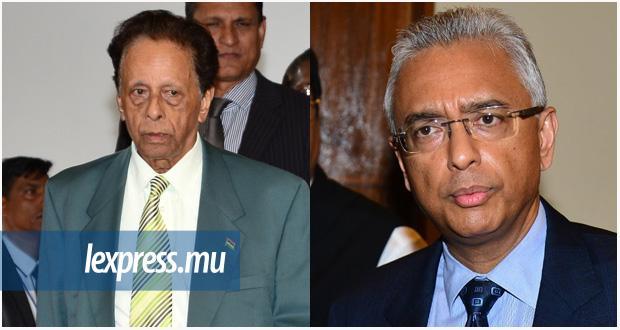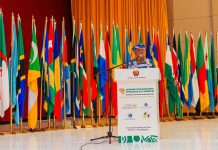Africa-Press – Mauritius. Nepotism is a curse that impacts the economy. The unfair use of power in order to get jobs or other benefits for relatives is rampant at all levels in Mauritius.
It is high time to fight favoritism in all its forms though effective legislation. As per the Collins dictionary, Nepotism is “the unfair use of power in order to get jobs or other benefits for your family or friends”.
Nepotism comes from the Latin word “nepotismo”, meaning nephew. This comes from the fact that catholic popes and bishops used to favour the appointment of their nephews.
During the present regime, ministers and parliamentarians have blatantly appointed their family members and, in some cases, their mistresses in public office.
Employing “connected parties” is against modern labour law, which incorporates the doctrine of fairness and meritocracy in recruitment. There’s a long list of recent nepotism, but we shall only name a few below;
(a) The one to top the list is the transfer of the Primeministership by Sir Anerood Jugnauth (SAJ) to his son, Pravind Jugnauth, when same was never in the manifesto of l’Alliance Lepep.
(b) The appointment of many of the relatives of the actual Prime Minister.
(c) The blissful time of family members of Minister Anil Gayan – the appointment of the wife, his cousin, his son and his son in law.
We must also not forget the saga involving Vijaya Sumputh, the former director of the Trust Fund for Specialized Medical Care, who had to resign after it had come to scrutiny in Parliament that she was earning Rs 323 000 monthly, whilst the monthly salary, including benefits, of a Member of Parliament, is around Rs 140 000.
(d) The wife of the Minister of Technology, who was the favourite notary of the government and, as such, has been able to get assignments, worth millions of rupees.
(e) The appointment of the very “close friend” of the Deputy Prime Minister, Ivan Collendavelloo, at the Mauritian High Commission of Australia.
(f) Member of Parliament Raj Dayal, who got lucky to win a jackpot of Rs 15 million as compensation for his destitution as Commissioner of Police in the year 2000. Furthermore, his two sons have also been appointed in public office.
There are also cases where “appel d’offres” for public works/supplies have been awarded to close government circle of politicians, State land given to the husband of Honourable Mrs Boygah, several cleaning contracts awarded to the company where Honourable Sudesh Rughoobur acts as consultant and the list goes on.
The local press has extensively reported cases of nepotism. The people of Mauritius, particularly the youngsters, want more meritocracy and transparency to prevail.
It is high time to clean up our parliamentary democracy which have been accused of long standing nepotism. Even, the coming into force of the Equal Opportunities Commission (EOC) has not deterred our politicians from favouring their close families.
It seems that the Commission has been unable to fulfil its duties. We still have in mind how the former commissioner of the EOC, Mr Brian Glover, was ejected from his seat.
He had opened an enquiry on the appointment of Vijaya Sumputh as well as that of Youshreen Choomka, both ladies forming part of the close circle of the government.
Mrs Choomka had been appointed as director of the Independent Broadcasting Authority. She was the Chairperson when the post of director was advertised. Many States in the US have enacted anti-nepotism legislations.
The Congress had enacted such legislations in 1967, after the appointment of Robert Kennedy as Attorney General by his brother, and the then president, John Kennedy.
The only way left to limit the abuse of power by our politicians in relations to recruitment and award of contracts is to have an anti-nepotism legislation, which shall be relevant to our small country. Our legislators should decide who would be considered as “closed relatives” in an anti-nepotism legislation.
Would it be first degree relation only, that is parents, siblings and children, or it shall have a broader meaning, to include fourth degree relationship of affinity (relationship by marriage) or consanguinity (relationship by blood) as well as including individuals sharing the same dwelling as the public officer.
The law can even make it illegal for a parliamentarian and/or a public officer to support the hiring of a particular individual. This shall cover instances, such as where recruitments are advertised only as a colourable device to justify the appointment of close relatives.
In one instance, the daughter of our actual Speaker of Parliament was questioned as to whether her appointment as Chief Executive of the State Property Development Company (SPDC) is tainted with favoritism.
The population was stunned to hear her reply on radio which was that following an advertisement, she had applied for a job at SPDC, and she was not aware that it was for the post of Chief Executive.
In the past, in Parliament, we have heard “government is government and government decides” or, “the relative is highly qualified”, in order to justify close relatives appointment.
For some of our politicians, it seems that their “protégés” are the only suitable qualified candidates in Mauritius. In order for a piece of legislations to be effective, it must provide penalties, whenever the law is violated.
Punishments may include the reimbursement of salaries paid to the close relatives by the public officer, dismissal of the relatives or the breach can be considered punishable by fines, imprisonments, removal from office or a combination thereof.
In addition, it must also be resolved what type of public officers that would be stopped from hiring or promoting their close relatives. Would it include only family members of the parliamentarians, or it shall be extended to other higher ranking officers of the Public Service Commission.
Nepotism has a negative impact on the growth of the economy. There must be an end to this scourge by governments. And this can only be achieved if we enact antinepotism legislation.
For More News And Analysis About Mauritius Follow Africa-Press







